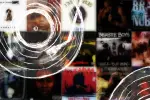June is here, which means it’s officially Pride Month — the month-long celebration of the history and legacy of the LGBTQ+ movement. The shelves of stores are lined with rainbow merchandise, companies release rainbow-themed ads in an attempt to pander to LGBTQ+ people without using their influence for actual change, and politicians who voted against gay marriage will release hollow statements of support.
While today it may be legal for LGBTQ+ people to get married, adopt children and simply exist, 50 years ago this was not the reality. Identifying with the LGBTQ+ community was a crime that the police could arrest and torment citizens for, leading LGBTQ+ people to hide their identities or only gather in spaces that were safe for them.
In New York City, there were many gay bars, often ran by the Mafia, that would serve LGBTQ+ patrons and give them a space to meet and express themselves freely. One of these bars was the Stonewall Inn in Greenwich Village; it was a simple dive bar, but it offered a place for creating community free of oppression or societal judgement. However, it could not keep LGBTQ+ persecution from the police at bay.
On Saturday, June 28, 1969, police raided the Stonewall Inn. They began arrests of bar employees and then started to perform forcible gender checks on crossdressers, many of whom resisted and were subsequently arrested. The police also harassed lesbian patrons and began to escort others out of the bar, arresting many of them as well.
This is when the violence began. According to some sources, a crossdresser hit a police officer with her bag and the police beat her viciously. Police made more violent arrests and the crowd hit a breaking point. They began to throw things at the police to defend themselves and their friends. The backlash against the police for this raid led to protests and riots every day until the following Wednesday, with LGBTQ+ New Yorkers taking to the streets to fight for their right to exist in a heteronormative society.
While Stonewall was just over 50 years ago, some have attempted to rewrite its history, including Roland Emmerich, director of the 2015 film “Stonewall.” Instead of focusing on the variety of different LGBTQ+ people who were present, Emmerich created the character of Danny, a white, cisgender gay man who according to this film throws the first brick at the riots.
This movie is a harmful example of society’s attempt to whitewash Stonewall. While there were certainly white LGBTQ+ people present at the bar, making the central character a white cisgender man erases the reality of the countless non-white and non-cisgender people who fought tirelessly for their rights. Among these people were Marsha P. Johnson and Sylvia Rivera. These BIPOC women, though they did not use the label transgender, did not adhere to their biological sex and primarily identified as drag queens using female pronouns.
Witnesses saw Johnson actively participate in the riots, while some say she began them herself. Rivera — not a white boy with a brick — likely threw one of the first bottles at the police. Rivera also worked with the Gay Activists Alliance, until they stopped supporting trans rights; she and Johnson then founded the Street Transvestites Actual Revolutionaries to fight for trans rights along with other LGBTQ+ rights.
By leaving out these activists from the “Stonewall” film, Emmerich, whether intentionally or not, leaves out a massive piece of Stonewall history; he participates in the erasure of trans and BIPOC voices. Trans writer and playwright Leela Ginelle wrote about the film: “In 2015, with so much political activity around anti-racism and trans rights, a film about Stonewall could have been the perfect opportunity to tell an intersectional story of this important event, putting queer and trans people of color front-and-center where they belong.”
Instead of crafting an intersectional narrative, Emmerich focuses on a white cisgender gay man, a story often told in media. While all LGBTQ+ narratives are important and worthy of attention, this is not the story to insert a fictionalized character into.
If Emmerich wanted to make a movie about Danny, he should have made a different film. Don’t put Danny in the Stonewall era and give all of the attention to him while ignoring trans and nonwhite activists. Johnson is present in the film, but according to Ginelle, serves as comic relief; Rivera is not present at all. Emmerich erases their stories and furthers the myth of Stonewall as riots led by white cisgender people.
Emmerich’s fictionalized narrative is especially damaging during this year’s Pride Month as protests around the country call for an end to police brutality against black people after the murders of George Floyd, Breonna Taylor and Tony McDade. The Black Lives Matter movement is combatting the racist structures in place in this country.
Pride 2020 is inherently intersectional, hopefully more so than in years before. Citizens need to take this time to look back at Stonewall; they need to reflect on the riots against police brutality that helped raise awareness and grant rights to LGBTQ+ people.
The parallels between 1969 and 2020 are clear. People in 1969 thought that the Stonewall Riots were too violent and extreme. Yet, Stonewall was essential to the existence of Pride today. Remembrance is crucial to understanding the events of 2020 and imperative in creating an intersectional Pride Month that does not eliminate, erase or minimize the voices and perspectives of LGBTQ+ BIPOC. Listen to and uplift LGBTQ+ BIPOC voices this Pride and make sure to keep an intersectional mindset. Remember the truth and reality of Stonewall.
As Pride Month continues, here are support resources for those in the LGBTQ+ community, especially LGBTQ+ BIPOC:

















